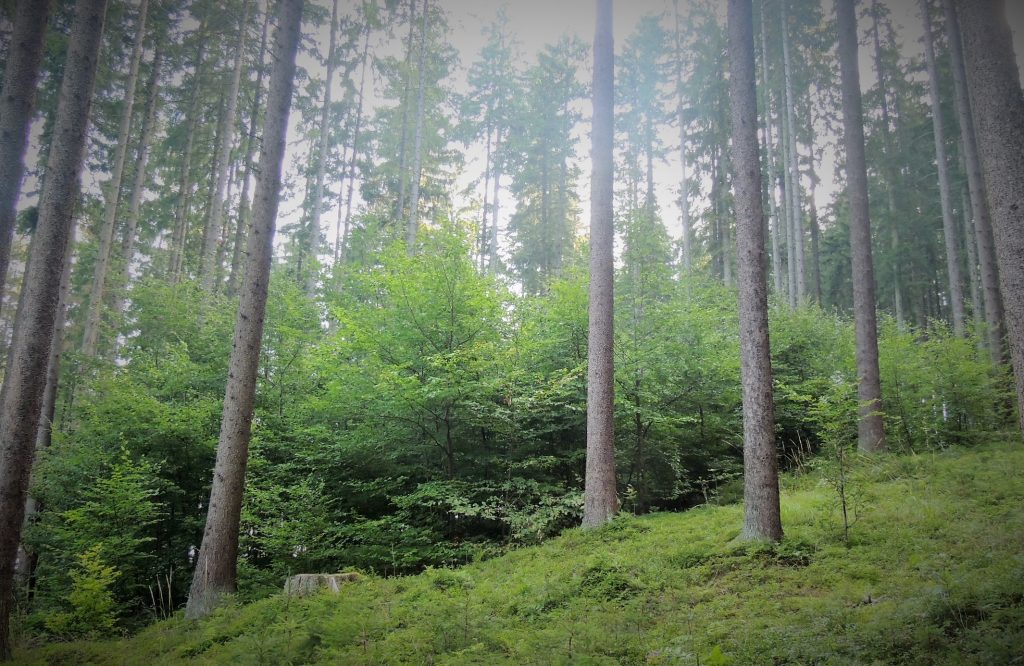PRO SILVA considers the forest ecosystem to be the most important natural component of the landscape. Taking a holistic view of the landscape and its mosaic of different ecosystems, the adoption of PRO SILVA principles of forest management is seen as having a beneficial effect on the whole landscape.
This concept is based on the fact that in former times most of Europe was covered by forest, which supported the majority of the indigenous flora and fauna. In areas which are now partly deforested, the remaining forest has to fulfil, as far as possible, the role which the larger forest area once performed. Silvicultural nurturing of the forest is therefore essential for treating the whole landscape. Tending is the keystone for managing and attending the forest. In this holistic context, management is considered to scale from single stem to the stand and from the stand to the whole site and landscape, regarding man as en entire constituent.


Forest management involves, in essence, the harnessing of available energy and directing this energy into those parts of the ecosystem which will maximise the intended objectives of management.
A multi-purpose forest, following PRO SILVA principles, will provide landscape protection in a general sense; conserving energy, water resources, and natural fertility, and enhancing the functions of the area as a whole.
Such a forest will contain a relatively large volume of timber, in a permanently varied structure, composed of trees which are fully suited to the site; and the forest edges will be carefully managed to protect the interior of the forest.
Forests also have a particularly valuable role to play in floodplains and in high mountainous areas. Each area of forest will contain a distinct assemblage of plants and animals and will require site-specific management.
A holistic approach should aim to reinforce fragments of forest and strengthen the links between them, to create a network of semi-natural habitats within and around cultivated land and urban areas.